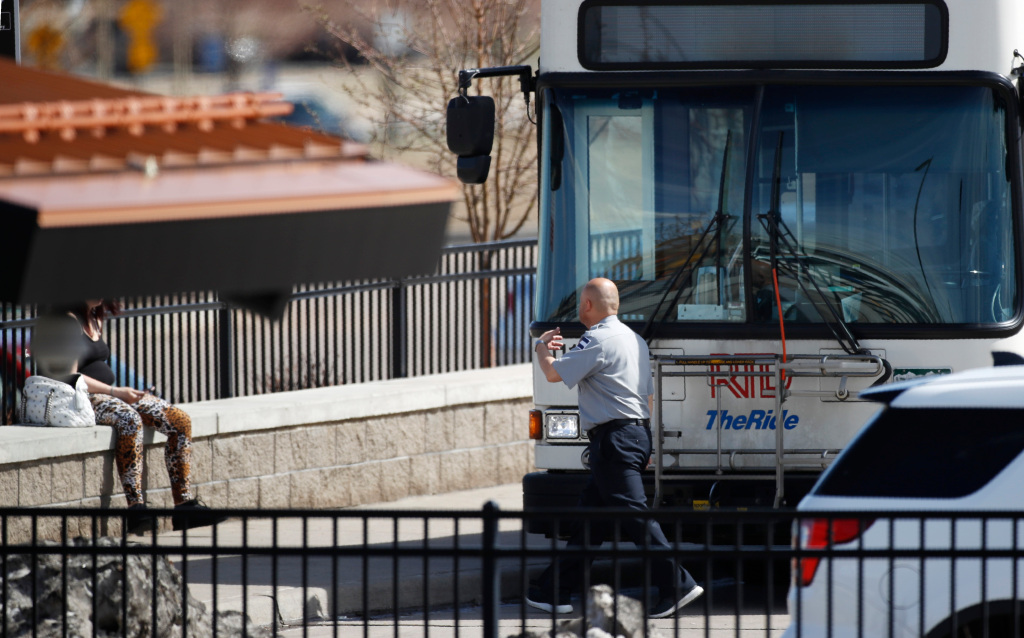The Regional Transportation District is preparing to give notice to both salaried and union employees that layoffs are coming — with potentially extensive cuts necessary to balance a $166 million projected shortfall in next year’s budget.
The union that represents bus and train operators cried foul Tuesday, questioning the reliability of the agency’s financial projections and asserting that laying off “hundreds of its front-line employees” would harm RTD service for years to come, even after the pandemic subsides.
Lance Longenbohn, the president of the Amalgamated Transit Union’s Local 1001, issued a news release accusing RTD of “fear-mongering.” He suggested the evolving staffing plans are likely to affect his members at a higher rate than administrative employees.
It’s still unclear how many jobs the Denver metro transit agency plans to cut, and in which categories. RTD has told board members that Interim General Manager Paul Ballard and the business staff are in the process of finalizing the layoffs plan and are seeking updated financial projections. A board study session that had been set for Tuesday to discuss specifics publicly has been delayed until Sept. 15.
As of late last week, the agency had expected to send a general announcement about layoffs to employees on Tuesday, but spokesperson M. Marta Sipeki said that won’t happen because “the plan is still being worked on.”
She did not respond immediately to a request for comment on the union’s statement.
In recent weeks, discussions with board members about the projected shortfall — amounting to roughly 20% of the operating budget — have included more than $75 million in potential cuts to administration and service.
The bulk of the cost-cutting would be in personnel, likely translating into hundreds of layoffs if the plan is adopted by the board.
“Nothing is set in stone yet,” board Director Claudia Folska told The Denver Post after receiving one of several private budget briefings for board members last week. But, she added, “I can say that everything is on the table.”
To balance the budget, the board also is considering the controversial move of suspending annual contributions to RTD’s FasTracks Internal Savings Account, including $17.6 million next year, and even tapping into its $119 million balance to cover RTD’s $33 million contribution toward a planned bus route-improvement project on Colorado 119 between Boulder and Longmont.
That account is RTD’s savings account for unfunded FasTracks projects, including completion of a northwest rail line to Boulder and Longmont — a $1.5 billion project that’s decades behind schedule.
Agency leaders have begun layoff talks with the union, which represents more than 2,000 operators and operational support staff. Still unclear is the budget shortfall’s impact on employees of the private operators who run some RTD routes.
After the pandemic caused ridership to plummet — it was still down about 60% from normal last month — RTD reduced most service to weekend levels. It has assigned idled operators to cleaning duty and other tasks to keep them busy.
RTD’s newly appointed CEO and General Manager Debra Johnson, who’s negotiating a contract and salary, hasn’t started at the agency yet.
“We hope that RTD’s new GM, Debra Johnson, will take a hard look at the numbers being briefed to the RTD Board by its austerity Task Force, and not allow RTD’s mission — and its workforce — to be damaged by hasty action,” the ATU unit’s release says.
But with sales tax proceeds down severely — a condition expected to persist beyond 2021 — it was only a matter of time before RTD began looking at staffing cuts.
The union’s statement Tuesday questioned the projections produced by the Leeds School of Business at the University of Colorado Boulder, noting that the forecast for 2021 fluctuated wildly a few months ago from a $252 million shortfall to $166 million.
Salaried employees have taken several furlough days in recent months, but the union has resisted that cost-cutting measure.
Folska said RTD and other transit agencies’ severe budget shortfalls point to the need for Congress to pass a second coronavirus pandemic stimulus package providing additional aid on top of money the agencies received earlier this year.
“Absolutely, this is a desperate situation,” she said, casting blame on Senate Republicans’ holdup of a House-passed bill.
Other budget-balancing decisions under consideration by RTD’s elected board include dipping into reserves, including by nearly $59 million for operation of the FasTracks lines and $8.6 million in the base budget, which covers RTD’s other operations. During a board session last week, agency staff said RTD’s plan for coming years would leave reserves with just a one-month cushion.



















